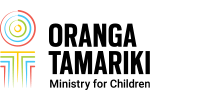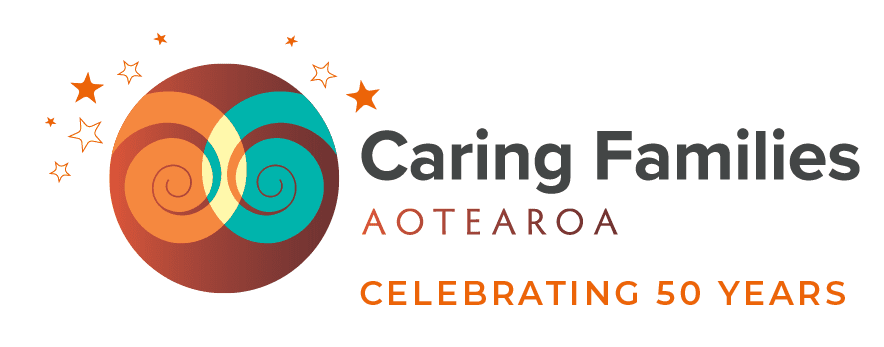Self-directed Online Learning
Our members have told us that committing to face-to-face learning, or even completing a facilitated online course at a fixed time, can be challenging among the normal day-to-day of caregiving.
So, we’ve taken that feedback onboard and reshaped our training into manageable chunks of learning that can be completed at your own pace, in your own time. These courses cover key concepts in therapeutic parenting for you to add to your kete (basket) of caregiving knowledge.
All Caring Families Aotearoa training is based on Dan Hughes’ Dyadic Developmental Practice, which creates healing through relationships. We also offer training on the National Care Standards for Oranga Tamariki and NGO caregivers.
Each course takes about one hour to complete.
NEW! Introducing DDP-Healing at home
This course explores the core principles of Dyadic Developmental Practice DDP parenting—PACE (Playfulness, Acceptance, Curiosity, Empathy)—and how they can be put into action within the home. DDP is the guiding model adopted by Caring Families Aotearoa, and this course will help you understand how to integrate its principles into your caregiving journey.
More details
Dyadic Developmental Practice (DDP), developed by Dr. Daniel Hughes, is an approach designed to support children who have experienced trauma and disrupted attachments. It focuses on creating a safe and supportive environment through responsive, attuned caregiving that builds trust and emotional security.
DDP aligns with the values of manaakitanga (nurturing care), aroha (compassion), and whanaungatanga (deep connection). It recognises the importance of whakapapa (identity and belonging) in the healing journey of tamariki.
This course explores the core principles of DDP parenting—PACE (Playfulness, Acceptance, Curiosity, Empathy)—and how they can be put into action within the home. It offers a framework that supports mauri ora (flourishing wellbeing) and strengthens the caregiver-child relationship through culturally responsive and trauma-informed practice.
DDP is the guiding model adopted by Caring Families Aotearoa, and this course will help you understand how to integrate its principles into your caregiving journey.
Attachment 101
This course offers a foundational understanding of how early attachment experiences shape a child’s emotional and social development. It covers key concepts; attachment styles, the caregiver’s role in fostering secure attachments, and examines the impact of loss and separation on children in care.
More details
Attachment shapes how we connect, trust and grow. By understanding its roots and behaviours, we unlock the tools to nurture resilience and healthy relationships in children. It is important for you to understand as most children in care have insecure attachments due to their past trauma and adversity.
Understanding well-being through a cultural lens
This course will show you how to use a cultural model to develop a holistic view of your own well-being and that of others. It is a gentle learning experience giving you the time to explore how connection and balance contribute towards overall well-being.
More details
At Caring Families Aotearoa we acknowledge and celebrate the many different cultures that make up and contribute to our country. We embrace these differences as they form the foundation of our identity – both as individuals and as a community. Each culture is steeped in history and lore, and each has their approach to health and well-being. This course focuses on well-being from a Māori perspective.
The information it contains is a humble offering of centuries of knowledge passed down through generations by way of stories, karakia (spiritual incantation), waiata (songs), whakapapa (genealogy) and practice. We have taken a small cross section of that knowledge to share.
Healing using the House Model of Parenting
More details
The key parts of the House Model, such as boundaries, nurture, and guidance, are a common thread across many of our training courses. Healing using the House Model of Parenting will give you a good understanding of them all.
Developmental and Historical Trauma
More details
You’ll learn to recognise signs of trauma, understand their effects on emotional regulation, relationships and brain development. Explore strategies to create safe, supportive environments, and much more.
How our Past Shapes Parenting
More details
The information it contains is a humble offering of centuries of knowledge passed down through generations by way of stories, karakia (spiritual incantation), waiata (songs), whakapapa (genealogy) and practice. We have taken a small cross section of that knowledge to share.
Why Therapeutic Parenting?
More details
By using empathy,consistency, and understanding, therapeutic parenting helps children regulate their emotions, form secure attachments, and build healthy relationships. It focuses on addressing the underlying needs behind challenging behaviours, promoting long-term emotional and psychological well-being.
What are ACES / Adverse Childhood Experiences?
More details
Understanding ACEs is the first step on the journey to therapeutic care. There are four parts to this training:
- An introduction to Adverse Childhood Experiences
- How to identify ACEs and understand their long-term effects on health and opportunities
- Protective factors and therapeutic strategies to support children and help them build resilience
- Creating a safe and nurturing environment for children affected by ACEs.
Caregiving 101
More details coming soon

National Care Standards
The National Care Standards set the minimum requirements that must be met for tamariki and rangatahi in care, as well as the support caregivers should receive when they open their hearts and homes to children.
There are SIX parts to the National Care Standards. We have adapted them into four easy-to-understand, self-directed courses giving caregivers a clear understanding of their rights and responsibilities.
Accessing our new training
We aim to make our training available to as many caregivers as possible.
If you are a caregiver or professional supported by an agency other than Oranga Tamariki or Work and Income, please check with your agency first before registering on one of our courses.
Looking for more?
There’s more exciting online learning to come. Watch this space for some shorter, self-directed versions of our former training courses, as well as some brand new content.
If you want to be the best therapeutic parent you can be, we’ll have a course for you, no matter what stage you are at in your care journey!
Learning Resources
We have put together a library of supplementary training resources to help you on your therapeutic parenting journey. These can be used to help refresh your learning, shared with other caregivers in your network, or printed out to post around your whare (house) as an everyday reminder.
